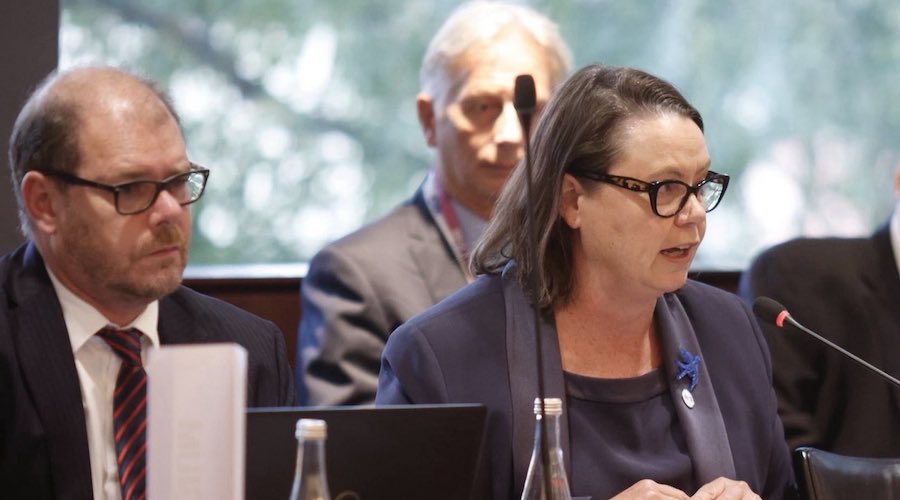
Australia expanded its list of critical minerals deemed crucial to its energy transition and national security needs as the country boosts the strategically and economically important sector.
The government added fluorine, molybdenum, arsenic, selenium and tellurium to the list of minerals that it regards as essential to modern technologies, economies and national security, Minister for Resources Madeleine King said in a statement Saturday. Helium was removed from the list.
Officials also created a new strategic materials list, which includes copper, nickel, aluminum, phosphorous, tin and zinc. While these commodities are also key to the energy transition, they’re not at risk of supply chain disruption and have well-established industries, according to the statement.
The two lists “will help government focus on those commodities needed to create jobs, keep us secure and power our economy,” King said.
The US and Australia are ramping up cooperation on critical minerals and infrastructure initiatives, part of a strategy aimed at countering Chinese military and economic influence in the Indo-Pacific.
Excluding nickel and copper from the critical minerals list was “a wasted opportunity” and means such projects won’t be eligible for major funding, the Association of Mining and Exploration Companies said in a separate statement. Demand for nickel will be almost four times higher than current production by 2050, the industry body said.
(By Chris Bourke)
Comments